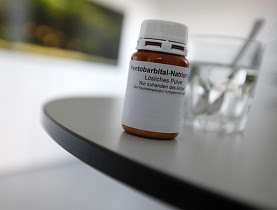But Says Vocation to Marriage Isn't Frustrated When Conception Is Impossible
By Kathleen NaabVATICAN CITY, FEB. 27, 2012.- The scientifically best approach to infertility, and also the one most respectful of the persons involved, is a pursuit of diagnosis and therapy, says Benedict XVI.
The Pope affirmed this Saturday when he received some 200 members of the Pontifical Academy for Life, convened for their 18th general assembly, which was on the topic of infertility.
"The pursuit of a diagnosis and of a therapy represents the most scientifically correct approach to the question of infertility, but also that which is most respectful of the integral humanity of the subjects involved," the Holy Father said. "In fact, the union of the man and woman in that community of life that is matrimony constitutes the only dignified 'place' in which a new human being, which is always a gift, may be called into existence."
The Pontiff said he encourages "intellectual honesty," which is "the expression of a science that keeps the spirit of the pursuit of truth alive, in the service of man's authentic good, and that avoids the danger of being a merely functional practice. The human and Christian dignity of procreation, in fact, does not consist in a 'product,' but in its connection with the conjugal act, the expression of the love of the husband and wife, of their union that is not only biological but also spiritual."
Vocation to love
Benedict XVI acknowledged that science cannot find a remedy for every cause of infertility.
He affirmed the Church's attention to infertile couples and its support of medical research.
"The science, nevertheless, is not always able to respond to the desires of many couples," he said. "I would like again to remind the spouses who experience infertility that their vocation to marriage is not frustrated because of this. The husband and wife, because of their baptismal and matrimonial vocations themselves, are always called to work together with God in creating a new humanity. The vocation to love, in fact, is a vocation to the gift of self and this is a possibility that cannot be impeded by any organic condition. Therefore, where science cannot find an answer, the answer that brings light comes from Christ."

